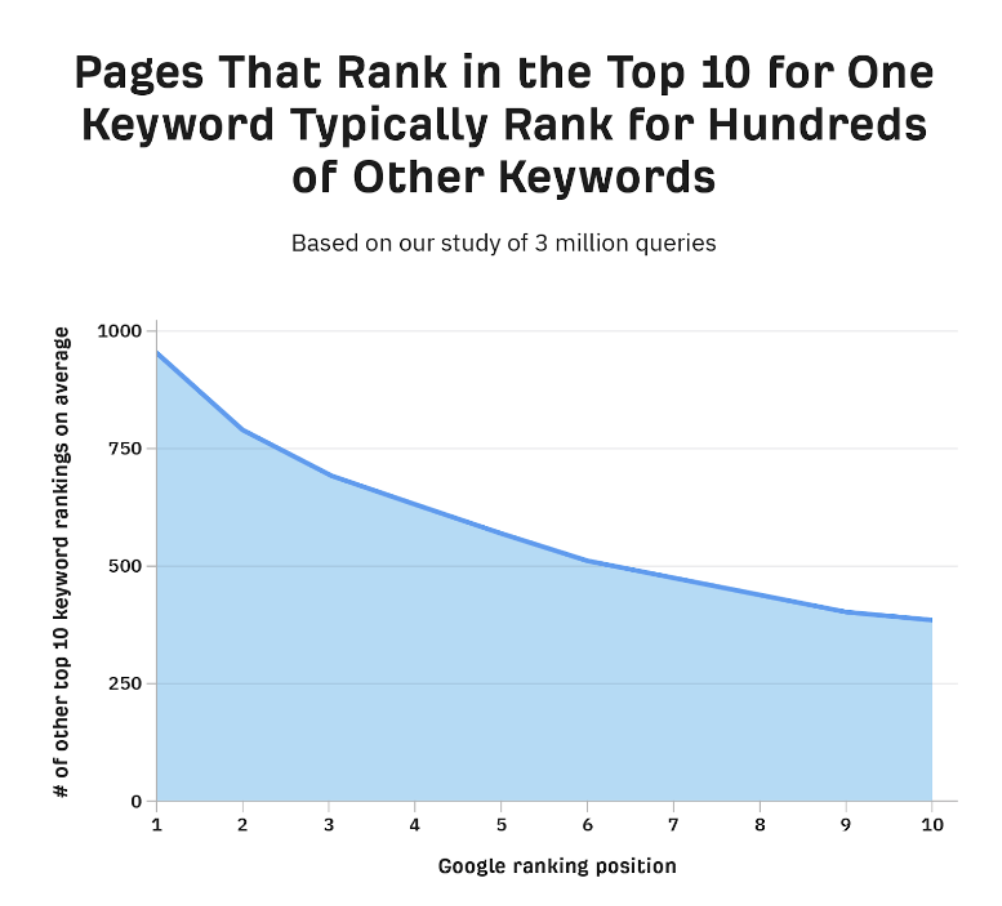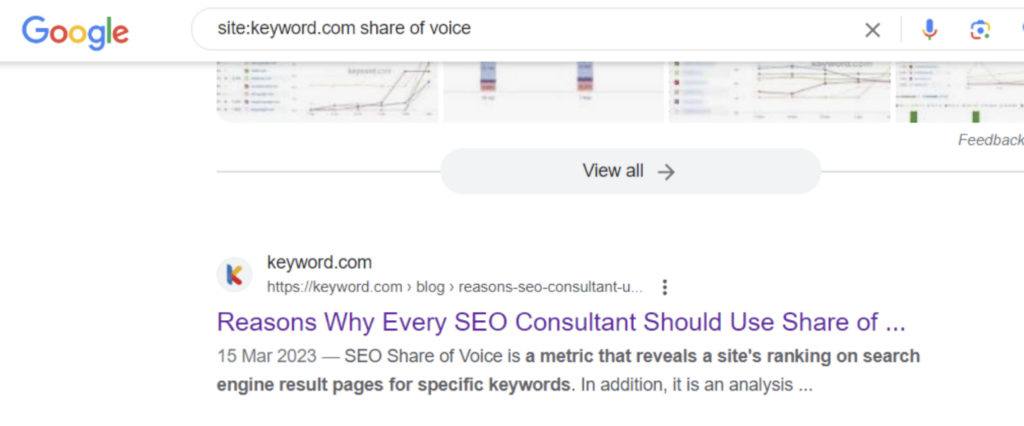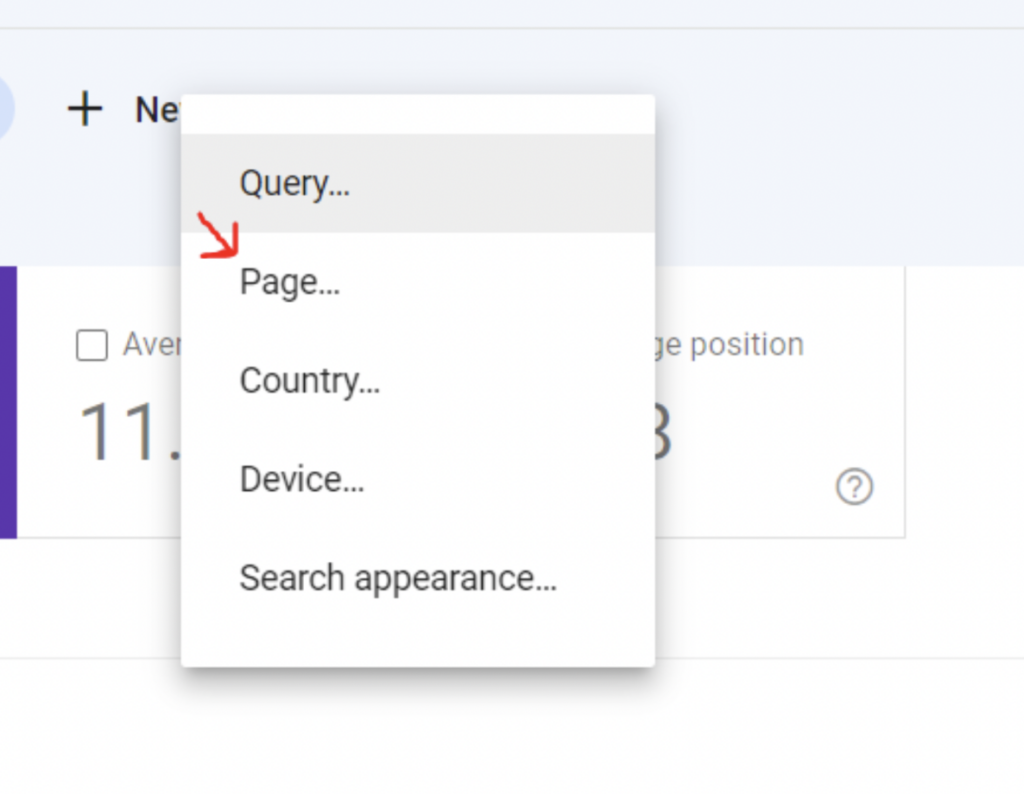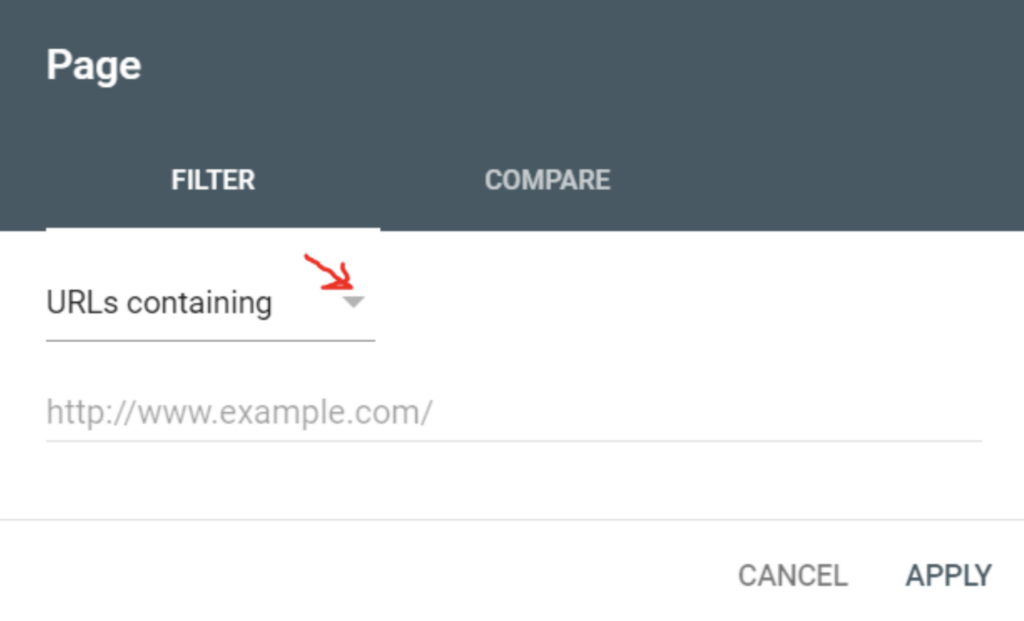What happens when you type one of your primary keywords into Google, and the ranking page that shows up is not your priority page? This is a result of keyword cannibalization.
Essentially, you have too many identical keywords spread throughout the content of your website, so search engines don’t know the exact page to rank for a particular keyword.
If this is happening to you, all you need is a simple tweak to turn the wheel in the right direction.
In this article, we explain keyword cannibalization, its impact, and steps to identify and solve it.
What is Keyword Cannibalization?
Keyword cannibalization refers to a situation in search engine optimization (SEO) where multiple pages within a website compete against each other for the same or closely related keywords. It occurs when different pages on the same website are optimized and structured to target identical or highly similar keyword phrases, confusing search engines, and users.
When keyword cannibalization happens, the search engine algorithms face difficulty determining which page should be ranked as the most relevant and authoritative source for a particular keyword. In other words, search engines weigh the multiple pages optimized for that exact keyword against one another and randomly pick the one they think is the best fit.
For example, Keyword.com is a rank-tracking software. If “rank tracking” is the only keyword we target on all our pages, we are telling Google that every page is about rank tracking … even though we have content on rank tracking reports, Share of Voice, local keyword tracking, rank tracking API, etc. Google’s algorithm can randomly rank a page about Share of Voice on its result page for “rank tracking” keyword. By scattering your website’s ranking potential across multiple pages, you will dilute its individual impact and ensure the priority page ranks best.
What If These Pages Rank for Other Keywords?
If two pages target the same keyword and one ranks high while the other (which you would prefer to rank) is on the 5th page of SERPs, this is keyword cannibalization. One page is consuming all traffic. But what if individual pages rank for multiple other keywords?
Is it still considered keyword cannibalization if there are other keywords? Ahrefs explains:
Ahrefs researched three million queries and discovered that the average #1 ranking page would also rank at the top 10 for nearly 1,000 other relevant keywords, while the #10 ranking page will also rank for over 400 similar keywords.
In this case, you don’t need to worry about the traffic from one keyword. There isn’t a real cannibalization issue because your overall organic performance is not affected by the existence of these two pages. However, deleting any of the pages can lead to a loss in traffic and other keyword rankings.
6 Negative Impacts Keyword Cannibalization Has on Your Website
Imagine you have an ecommerce website selling various brands of running shoes. You have two pages on your website targeting the keyword “best-running shoes”: one is a general category page showcasing a wide range of running shoes, and the other is a specific product page for a famous brand of running shoes. What are the adverse effects of this practice on your SEO campaign?
1. Reduced Search Visibility
When users search for “best running shoes,” search engines may struggle to determine which page to rank higher. As a result, your website may not appear prominently in the search results, or it may get outranked by competitors with a clear and focused page targeting that specific keyword.
You can read our blog post to learn more high-impact SEO tweaks to increase your site’s search visibility.
2. Diluted Authority
When two pages target the same keyword, it diminishes the authority and relevance of the website.
Instead of consolidating authority on a single page that provides comprehensive information about the best running shoes, it gets divided between the category and product pages. As a result, the authority of each page is split into bits.
3. Confusing User Experience
Users who search for “best running shoes” may expect to find a single page that offers an unbiased overview of the top options available. However, it can be unclear if they encounter both the category page and the product page in the search results. They may click on one page expecting general information but end up on a specific product page instead, leading to a poor user experience and potentially causing them to leave your site.
4. Decreased Organic Traffic
Due to reduced search visibility and a confusing user experience, keyword cannibalization can decrease organic traffic to your website. Users may bounce back to the search results and choose a competitor’s website that provides a more detailed and relevant page for their search query.
5. Difficulty in Ranking for Related Keywords
Keyword cannibalization can make ranking for related keywords or long-tail variations challenging. In this example, if you have a separate page targeting “best trail running shoes” or “best minimalist running shoes,” the presence of the cannibalized pages may hinder your ability to rank well for these specific terms, as search engines may see them as duplicates or closely related.
6. Diversified Links
Backlinks effort that ought to have gone to one full page will be split into the two pages. Imagine your backlink outreach acquired 20 links to the category page and 15 links to the product page; you could have summed your effort to acquire 35 links to one well-detailed page. And you know, backlinks are a crucial ranking factor as it helps to determine a website’s popularity, relevancy, and authority.
Steps in Identifying Keyword Cannibalization
The simple trick to identifying keyword cannibalization is checking pages targeting the same keyword and addressing the same search intent. It’s easy to identify keyword cannibalization in a small site with few pages compared to a full-blown website with thousands of pages.
Small site owners can create a spreadsheet highlighting their pages’ URLs and associated keywords to identify keyword cannibalization.
For example, a small ecommerce site that sells clothing can have a spreadsheet like this:
|
URLs |
Keywords |
| www.yoursite.com/bodysuits | bodysuits |
| www.yoursite.com/trousers | trousers |
| www.yoursite.com/waistcoat | waistcoat |
| www.yoursite.com/sportswear | sportswear |
| www.yoursite.com/hoodies | hoodies |
| www.yoursite.com/tshirts | tshirts |
Once you’ve created the sheet, you can run down the list to check for duplicate entries. If you prefer, you can use google sheets for SEO tracking to make the process more easy to maintain.
However, a more prominent site might need a more comprehensive process. Let’s examine a few strategies:
1. Perform a Content Audit
A content audit provides valuable insights to improve your content strategy and SEO campaign. Specifically, a content audit helps you identify duplicate content that can affect your SEO game. In other words, you can figure out multiple pages optimized for the same keyword and same intent.
You can simplify the task using tools like Screaming Frog and Google Search Console.
2. Create a Keyword Map
Keyword mapping is assigning or mapping keywords to specific pages on a website based on keyword research. We explained this strategy earlier as a simple tweak to identify keyword cannibalization in small websites. This process is also helpful for site owners with huge websites. However, it’s expedient to use a keyword mapping tool.
Keyword mapping tools help to arrange your pages in a group of keyword clusters to form a topical website structure. Through this process, you can see pages optimized for multiple keywords.
3. Google Site Search
This process helps check cannibalization issues for a specific keyword.
Do a search on Google like this – site:yoursite.com keyword.
Google will automatically provide a list of indexed pages for that keyword. For instance, if we want to check for cannibalization for a keyword on our site like “share of voice,” we will have a result like this:
From the result, we have three pages that target this keyword, but there isn’t any keyword cannibalization issue because the pages satisfy different search intent.
4. Use a Keyword Cannibalization Checker
Gone are the days when you had to monitor your SEO campaign manually; with one click, you can access several issues on your website with strategies to fix them.
Keyword cannibalization checkers are one of the game changers!
A keyword cannibalization checker helps you quickly discover multiple pages on your site targeting the same keyword.
Let’s check some of the best keyword cannibalization checkers:
- Google Search Console
Google Search Console is one of the keyword cannibalization checkers every site owner should have in their arsenal. You can view the queries that brought views and clicks to your site from Google searches using the performance report area of Google Search Console. This segment of the Search Console also helps to identify cannibalization issues.
– Click on the Performance section in the sidebar menu
– Stroll downward to select the keyword you want to analyze.
– After clicking on your preferred query, stroll downward and click the Pages tab to see pages competing for that keyword on SERPs.
If you notice more than one URL from your site listed for the same term, you may have a cannibalization problem.
- Keyword.com
If you are looking for a tool that provides updates of your pages’ performance on SERPs daily, keyword.com has got you covered.
Steve Toth, SEO Consultant at SeoNotebook.com, shares his experience with the tool.
“Looking at your ranking clusters on an aggregate and seeing the big picture, I think that’s incredibly valuable, and I wouldn’t want to live without keyword.com because of that.”
Keyword.com is a keyword rank-tracking software that helps you discover cannibalizing keywords and URLs. All you need to do is to provide the list of your keywords while the tool automatically analyzes the page ranking for that keyword with their position on search engine result pages. From here, you can know where to start fixing the problems.
Interestingly, you can beat any disruption in your SEO campaign through keyword.com daily ranking reports and updates.
Try your 7-day free trial now!
- Keylogs
Keylogs make keyword cannibalization identification as simple as flipping a switch.
It has a keyword cannibalization feature that finds competing search queries of a website in a single click with strategies to resolve them.
Log in with a Google account connected to your website, and the software does the rest.
How to Fix Keyword Cannibalization Issues
1. Consolidate Your Content and Redirect Old URL(s)
Consider consolidating your pages into one if they aren’t unique enough to merit having several pages targeting the same keyword. This is an opportunity to combine two underperforming pages into one well-detailed page. Interestingly, it might also address the issue of thin content.
Start with reviewing the pages directly with Google Search Console to discover the page generating more organic traffic and conversion.
– Click the Performance menu on the sidebar
– The following page displays the performance of your site over time. Proceed by clicking the New icon at the top of the page. You will see a drop-down of different options.
– Go to Page.
– Click on the drop-down icon beside URLs containing and click “Exact URL.”
Copy and paste the first page and click “apply.” Here you have the total clicks, impressions, average CTR, and average page position in the last three months. You can maximize the filter to check the page’s performance within your desired time frame.
– Click the Page icon again to analyze other pages having cannibalization issues.
NOTE: You can only analyze one page at a time.
Enter the URL and click enter.
Our goal is to consolidate the converting content on the page with the best performance (most traffic, impression, CTR, and ranking)
Take note of the page you want to keep (definitely, it should be the best performing page), copy the content of the cannibalized pages, paste them into the page you want to keep and delete the old page(s).
The next thing is to organize the page, i.e., make sure it looks good, get rid of whatever is duplicate, and take note of unique information to form full content that satisfies search intent.
The following action takes us to the next step.
-
Set up a 301 redirect
301 redirect allows you to consolidate your cannibalized pages by linking the less relevant pages to one authoritative page.
It’s just like you are telling Google algorithm that you have multiple pages targeting the same search query on your website that are way too similar, and you want it to redirect the less relevant URLs to the single most preferred URL.
You can watch the video below for more understanding of how to setup 301 redirect:
2. Use Keyword Cannibalization Checkers
You might be surprised that we mentioned the use of keyword cannibalization checker as a solution. Most of these software don’t only identify cannibalization issues but also provide strategies to fix them. You can beat the battle through these tools and know the exact pages to consolidate and redirect.
3. Find New Keywords
There is a possibility that the worth of the cannibalized pages is too valuable to lose them. In such cases, you may need to find new keywords, preferably long-tail keywords. This process drives you back to your keyword research table.
SIDENOTE:
- Your keywords should describe the page’s content. The goal is to ensure a user’s search intent is satisfied after reading your content.
- Search engines frown against keyword stuffing. Optimize your target keywords naturally in the content.
You can read our blog post on SEO keyword types to learn how to choose keywords for better search ranking.
How to Avoid Cannibalization Issues on Your Site
Rather than falling into the trap of search engines through keyword cannibalization, it would be best to be in a safe mode.
A fundamental Google SEO best practice to avoid keyword cannibalization is by creating one content around your target keyword.
What we mean here is not “generic content” but one comprehensive page that satisfies the searchers’ intent and keeps it updated consecutively.
To build a topical authority around your target keyword, you can create a topic cluster by creating a pillar page and interlinking it with several subpages.
Note: The subpages might target the same keyword but must have different search intent. Alternatively, you can research semantically related keywords around the primary keywords and create subpages.
Final Words
Whether you want to consolidate your pages or research new keywords, the result is that you will have a new page.
However, the success of any changes you make in your SEO strategy is dependent on continuous monitoring and analysis. In other words, rank tracking and adjusting to relevant algorithm changes affect the success of your SEO campaign.
But the stress involved in rank tracking can leave you overwhelmed halfway. That’s why most site owners invest in Keyword.com.
Arthur Choi of Digital Muscle Limited shares an intriguing review after using the tool.
He said, “I can’t seem to think of any other software that will give us the on-demand ranking position updates like keyword.com.”
Keyword.com is a rank tracker software that tracks the keyword position of each of your keywords. This tool allows you to track unlimited sites irrespective of your opt-in plan.
Its unique strength is how easy it is to use the tool. You can share your ranking reports with your clients and SEO team in one click. Interestingly, its Share of Voice feature provides detail of your pages’ positions on SERPs compared to your competitors and strategies to outrank them.
Try your 7-day free trial to see the fantastic features of this tool by yourself!





